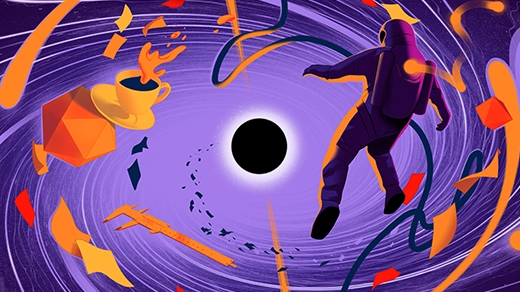Latest Articles
Is Particle Physics Dead, Dying, or Just Hard?
Columnist Natalie Wolchover checks in with particle physicists more than a decade after the field entered a profound crisis.
The Year in Physics
Physicists spotted a “terribly exciting” new black hole, doubled down on weakening dark energy, and debated the meaning of quantum mechanics.
How We Came To Know Earth
Climate science is the most significant scientific collaboration in history. This series from Quanta Magazine guides you through basic climate science — from quantum effects to ancient hothouses, from the math of tipping points to the audacity of climate models.
The Year in Physics
Physicists discovered strange supersolids, constructed new kinds of superconductors, and continued to make the case that the cosmos is far weirder than anyone suspected.
The Unraveling of Space-Time
This special issue of Quanta Magazine explores the ultimate scientific quest: the search for the fundamental nature of reality.
The Year in Physics
In a year filled with sweet new observations in astronomy and tantalizing breakthroughs in condensed matter physics, the brand-new space telescope takes the cake.
Physicists Create a Holographic Wormhole Using a Quantum Computer
The unprecedented experiment explores the possibility that space-time somehow emerges from quantum information.
A Deepening Crisis Forces Physicists to Rethink Structure of Nature’s Laws
Physicists are reexamining a longstanding assumption: that big stuff consists of smaller stuff.
In a Numerical Coincidence, Some See Evidence for String Theory
In a quest to map out a quantum theory of gravity, researchers have used logical rules to calculate how much Einstein’s theory must change. The result matches string theory perfectly.









